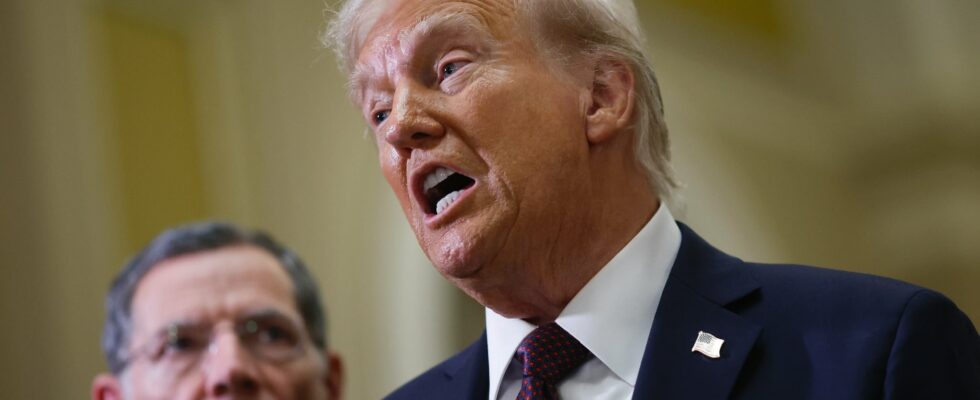On January 20, Donald Trump will be inaugurated president of the United States. Many wonder: how did we get to this point? What if, to understand a little better, both the success and the mode of communication of the 47th President of the United States, it was more instructive to turn to wrestling rather than psychiatry? Wrestling was born in the funfairs of the 19th century and has preserved some memories of it such as the term “kayfabe”. It is a slang word used to call to order an artist who was stepping out of his role. “Kayfabe” that is to say in verlan “Be fake” : continue playing your pretend role.
Wrestling only remains interesting on the condition that each spectator can believe in the truth of these confrontations for laughs. The majority of fans know very well that it is a scripted simulation but revealing it in broad daylight would spoil their fun. What ? On the voluntary suspension of disbelief, a notion coined by Samuel Coleridge, in the 19th century, to try to understand the magic that fiction exercises on our minds. It turns out that, sometimes, the charm endures and social life blurs the boundaries between reality and fantasy.
This confusion constitutes the matrix of the way in which Donald Trump occupies the public stage. The man multiplies outrageous declarations and lies but some of his supporters decipher his attitude as a theatrical interpretation whose form, rather than substance, reveals something true. Moreover, by his very journey, man stands between entertainment and exercise of power. Entrepreneur and reality TV host, he constantly puts himself in the spotlight by participating in his own television commercials and uses the laughably virilistic language of combat sports.
Former wrestling boss becomes Minister of Education
The confusion reached a high point in his career in 2007, when he participated in an iconic moment in wrestling history and faced Vince McMahon, the Chairman and CEO of World Wrestling Entertainment. The two men are friends in real life but, kayfabe Obviously, that day, nothing of this affection showed when Trump, in front of a jubilant audience, beat up and shaved McMahon’s head. Everyone will have noted that he has also designated Linda McMahon, Vince’s wife, as his future “Minister of Education”. However, he announced, during his 2024 campaign, that he would abolish this ministry! And those who comment on American political life were stunned: how can its voters accept such contradictions? Are they stupid? Are they indifferent to the truth? I rather believe that some of them accept the suspension of disbelief that any form of spectacle requires. For them, the contradictions on the merits do not matter because they interpret all of Trump’s messages as a single flag that says: “I am in your camp” and avenges them for all the insults that they consider to have endured. From this point of view, the kayfabe becomes a kind of political metalanguage. The supporters pretend to believe but, deep down, some of them are not fooled and this allows them to like the excesses of the leader without fearing their consequences.
The effect kayfabe is the symmetric of what we call the dog whistling : a tactic also known as “sub-speech” consisting of using suggestive language that will be decoded by particular social groups without arousing the disapproval of others. Here, it’s the opposite. This metalanguage is deciphered to the second degree by some of the supporters and, to the first, by the opponents: all of which makes it possible to optimize attentional capital. The question everyone is asking now when Trump says he wants to annex Canada or Greenland is: should we take this seriously? Donald Trump’s tour de force is to have diffracted the truth into political language. Some of his supporters literally believe when others know it is kayfabe…and that’s enough to constitute a solid majority. He managed to cross the lines between fiction and reality: from this point of view, he is a character terribly representative of the world that is coming.
Gérald Bronner is a sociologist and professor at La Sorbonne University.
.
